
In the spring of 2020, Square Enix still released the long-awaited remake of the cult game Final Fantasy VII.
The news stirred up the Russian-speaking community, because the game will not be localized into Russian. But the Japanese have too many difficulties with the English translation. So much so that one mistake in the 1997 release was worth the tears of millions of English-speaking gamers.
Today we will tell you what mistakes the Japanese make in English game localizations using Final Fantasy as an example. And why is this happening at all. Go.
Japanese gamedev doesn't like English
Historically, Japanese games used to be released only to their domestic audience. But closer to 2000, the studios began testing global markets and making localizations, including for the United States.
All over the world, English is considered the first language in gaming. Any studio that expects to sell a game on the global market pays special attention to localization there.
For example, the third "Witcher" was made by a Polish studio, but it is the English version of the game that is considered the main one.
For the Japanese, there is only one main language - Japanese. The rest are secondary. And the attitude to such localizations is appropriate.
The English version of classic Final Fantasy VII has a ton of grammatical errors. Some of them just sound crooked, but don't affect the gameplay.
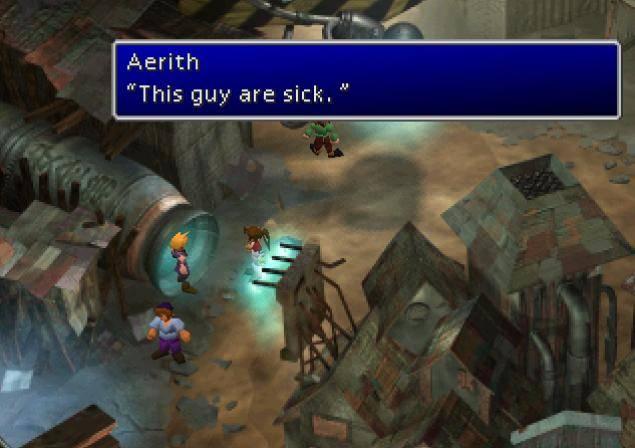
There are examples where a phrase in English sounds completely different from that in Japanese. It distorts the understanding of the situation and simply gets out of the general style of the character's dialogues.

The original says: - Don't say that, or you will.
Translated into English as: - Stop acting like an idiot and climb.
But there are also jambs that incorrectly tell the player what to do at a particular moment in the game.
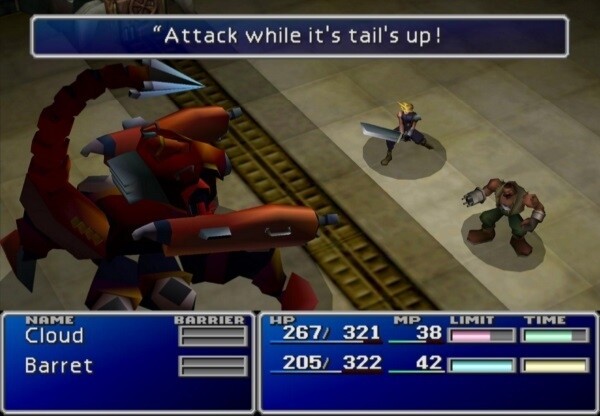
Cloud yells, “Barret, be careful! Attack while it's tail's up! It's gonna counterattack with it's laser!
Everything seems clear. If you do not pay attention to the error "it's" - "its".
- Barrett, be careful! Attack when he lifts his tail. He will counterattack with a laser.
The players followed the advice and attacked when the monster lifts its tail. And then they were attacked by a laser. Several such repetitions - and "game over". We can't even imagine how many people quit playing due to the fact that the first boss smashed them into dust. Dark souls didn't exist yet, so players didn't know how to enjoy games where you die every five minutes.
In fact, the correct translation is as follows:
- Attack while its tail's up, and it's gonna counterattack with its laser!
Do you feel the difference?
“If you attack him when he lifts his tail, he will counterattack with a laser.
That is, players should NOT have attacked the boss with their tail up. A single missed word reversed the clue, which damaged the gameplay itself.
It is not the first time for Russian-speaking players to struggle with crooked localizations. We played GTA: San Andreas, translated via Promt. Nothing will surprise us.
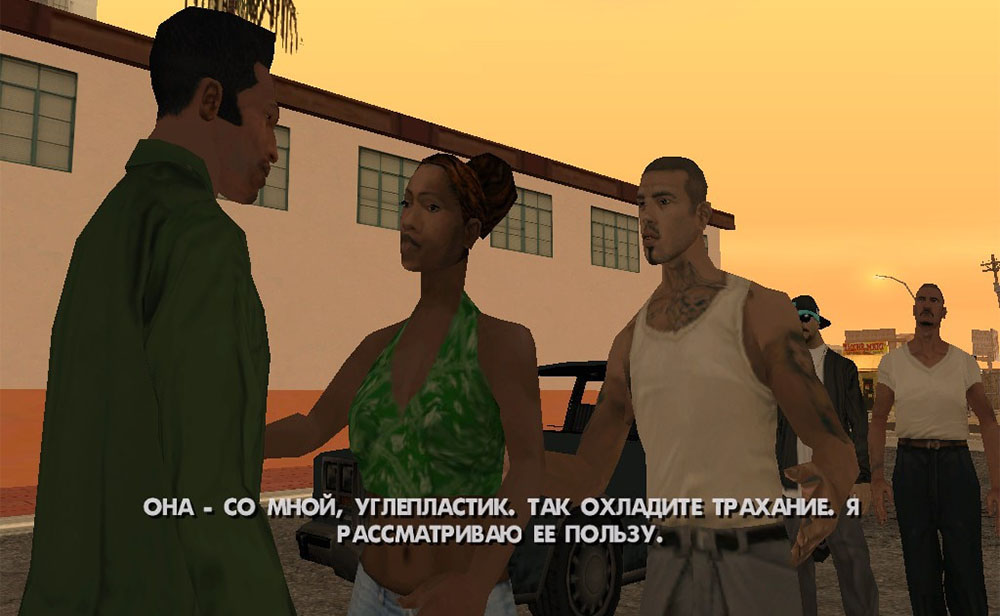
But the Americans were simply not ready for the fact that in English localizations something might be translated incorrectly.
However, the Japanese did not care then and so do not care now.
Whatever is the localization jamb that became a meme
Squall Leonhart, the protagonist of Final Fantasy VII, was very fond of the word "Whatever" in the English version of the game. In many dialogues, at least one of the options sounded like this.
This has caused a huge number of memes to appear. And what a surprise the players were that in fact there was nothing like "Whatever" in the original game scenario.
It's just that the localizers cheated and did not want to translate the secondary answers in the dialogues.
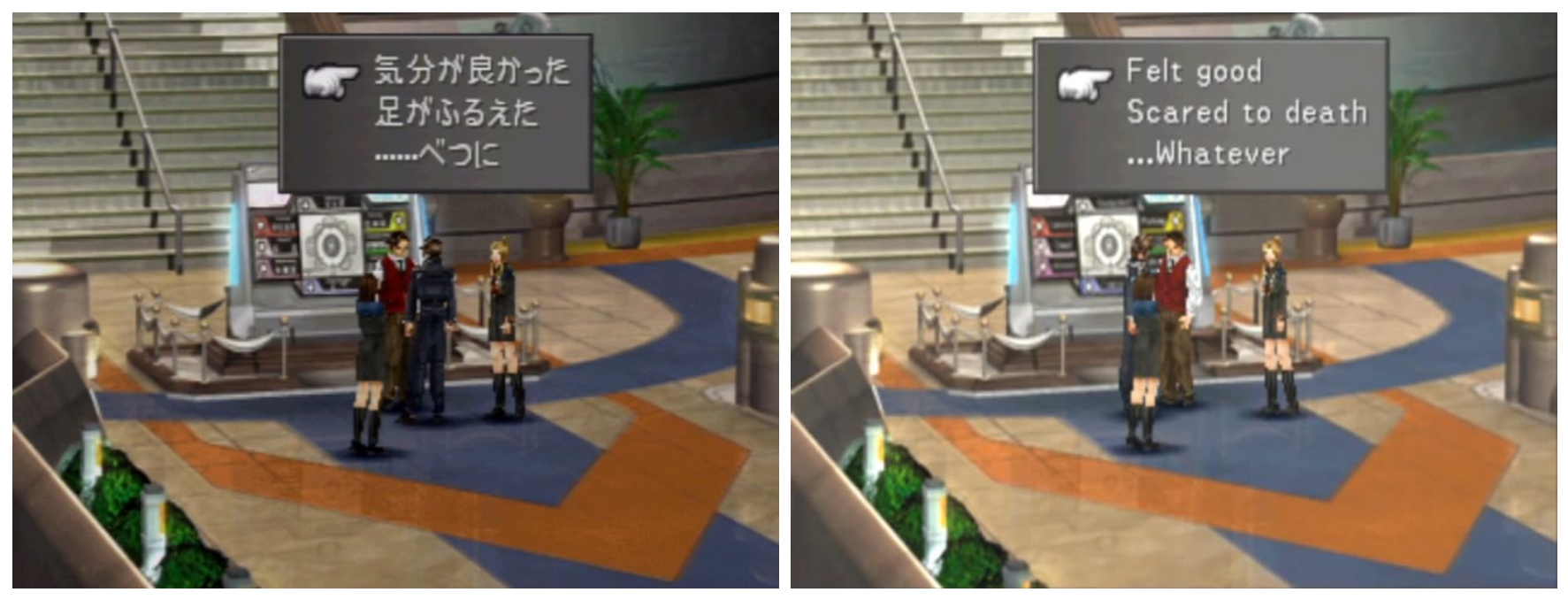
The main character is asked how he felt on the battlefield. In English, there are answer options "Good", "Scared to death", "Doesn't matter." But in Japanese, the third option sounds like "Okay" or "Nothing special." There is a difference, right?

Another option. The character named Selfie looks somber. Squall manages to cheer her up and in response to her teasing he says "Yeah, whatever." Sounds rude. But in fact, the phrase "warukatta na" in Japanese is an informal excuse. Something like "Well, I'm sorry."
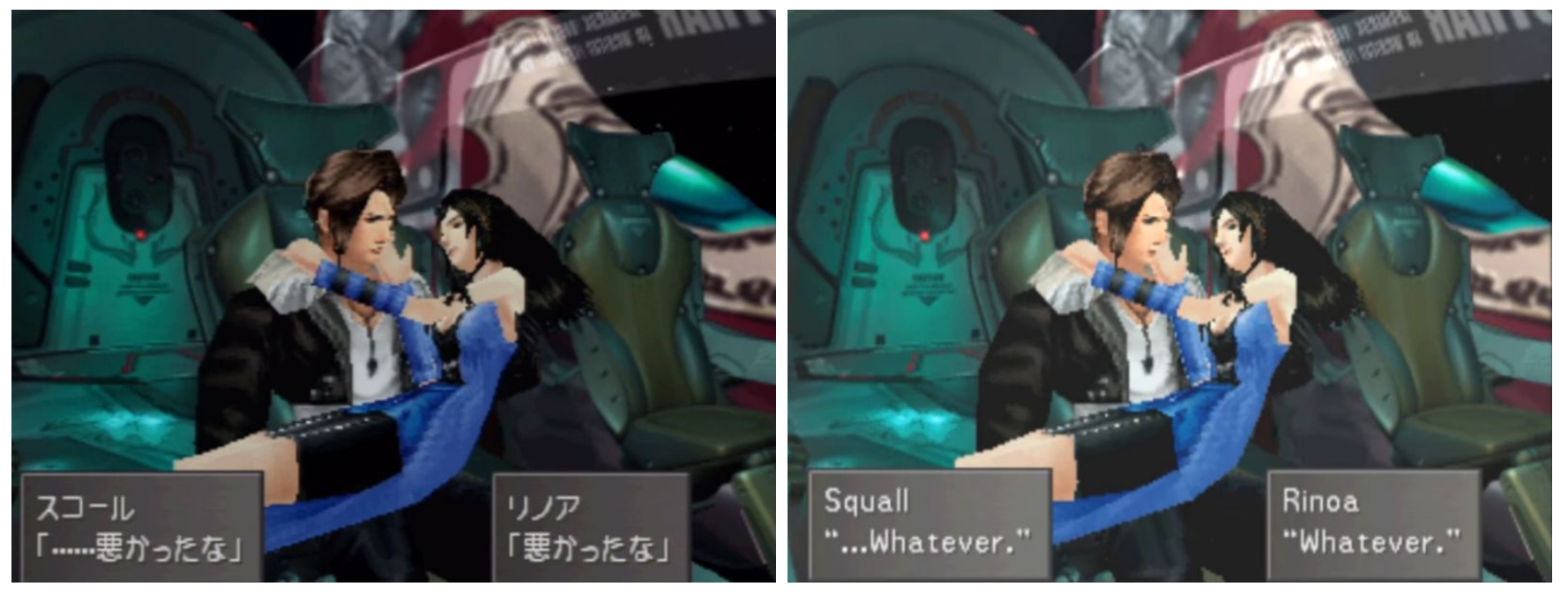
Probably the most famous scene with "Whatever". Squall flies in a spaceship with Rinoa, catches her in his arms, hugs her, and they say:
But now ... Squall, you're the one who gives me the most comfort. Comfort and happiness… And annoyance and disappointment, too!
But now ... Squall, you're the only one I'm really comfortable with. I feel calm and happy ... and also irritated and disappointed!
And after that both heroes answer "Whatever" - "Yes, do not care." The romantic and sensual moment is gone. But in fact they both say "Forgive me."
There were a lot of similar problems in the original Final Fantasy VII. The Japanese just didn't bother translating.
Final Fantasy VII Remake: years passed, but problems remained
Ben Sabin, the English translator of Final Fantasy VII, stated in an interview with the localization team that, unlike the original version of the game, the translation is now on par.
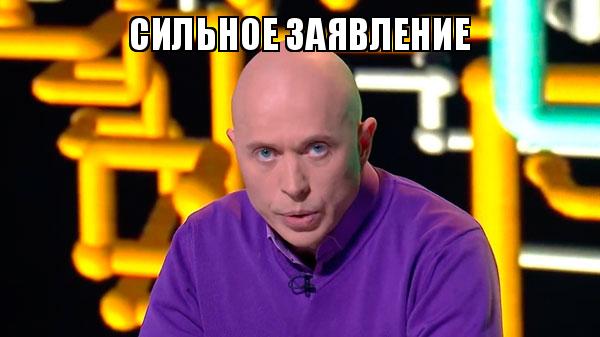
According to localizers, work on the language versions of the game started back in 2015, when a remake was announced.
5 years. For 5 years, work has been done on localizations. And the result was again something unintelligible.
There are a lot of messages on thematic forums that localization is screwing up again. For example, one of the players - a native speaker of Japanese and English - wrote that Ben Sablin completely ruined the game script with his translation.
And an Italian gamer made a comparison of the game's English and Italian dialogues. And in some scenes they are completely different and carry completely different meanings.
You can watch it yourself. The video has English voice acting, and in the subtitles the player wrote a direct translation of the Italian lines.
Here's one example from the video:
English localization:
SOLDIERs may attack on command, but I hear they make good guard dogs too.
[Soldiers can attack on command, but I've heard they are good as watchdogs too.]
Italian translation:
Here is the loyal mastiff of Shinra, the ruthless SOLDIER.
[This is Shinra's loyal Mastiff, a ruthless soldier.]
The phrases are so far apart in meaning that the perception of the scene completely changes.
Of course, there are also positive aspects. For example, localizers have more accurately translated menu items, location names and commands. But there is too much gag in the dialogues. It's hard to call it localization, even more so as adaptation. The maximum is a retelling. But for a translation that has been done for 5 years, the result is simply terrible.
A dubious advertising campaign on the market of post-Soviet countries adds piquancy. Because there was no translation into Russian and will not be. For the Russian-speaking market, the game was offered in English, but the advertisement tactfully kept silent about it.
Doubtful, of course. On the other hand, if the Japanese don't really bother with English localization, what would a Russian translation be like? You would have to "finish" it with patches with the help of enthusiasts, and this is definitely not what you expect from a game for 5000 rubles.
***
Final Fantasy is definitely a legendary series of games. But Square Enix has a strange attitude towards all language versions except Japanese. Promote a remake on the world market, but at the same time make a translation into English carelessly. Buying a lot of money for advertising on the Russian market, but not doing localization at all.
Usually at the end of such articles we say “Learn English for the most complete gaming experience,” but in this case it would be banter, so we tactfully keep silent.
Online school EnglishDom.com - we inspire to learn English through technology and human care

Only for Habr readers, the first lesson with a teacher on Skype is free ! And when you buy classes, you will receive up to 3 lessons for free!
Get a full month of ED Words premium subscription as a gift .
Enter your finalfantasy promo code on this page or directly in the ED Words app . The promo code is valid until 10/20/2021.
Our products:
- Learn English words in the ED Words mobile app
- Learn English from A to Z on the ED Courses mobile app
- Install the extension for Google Chrome, translate English words on the Internet and add them to study in the Ed Words app
- Learn English in a playful way in the online simulator
- YouTube- EnglishDom